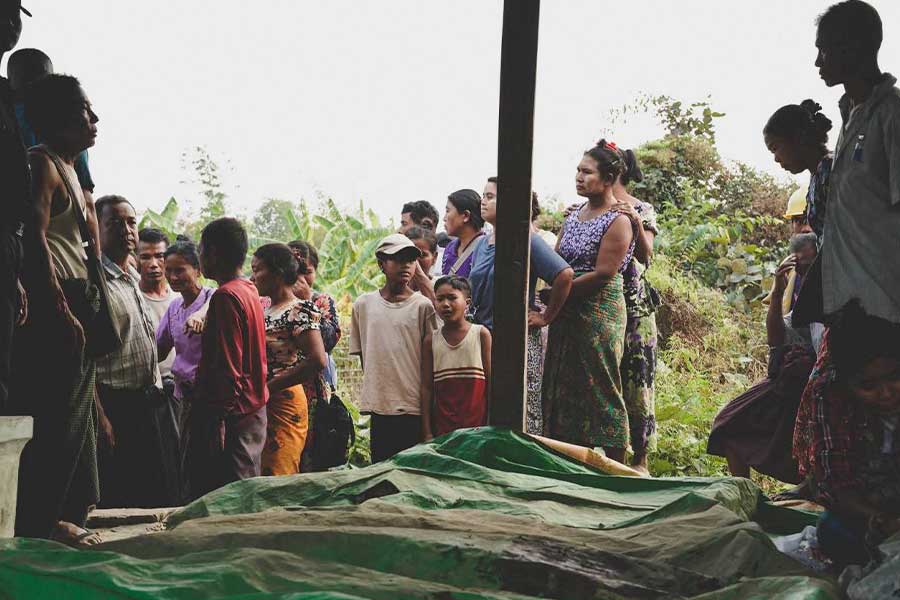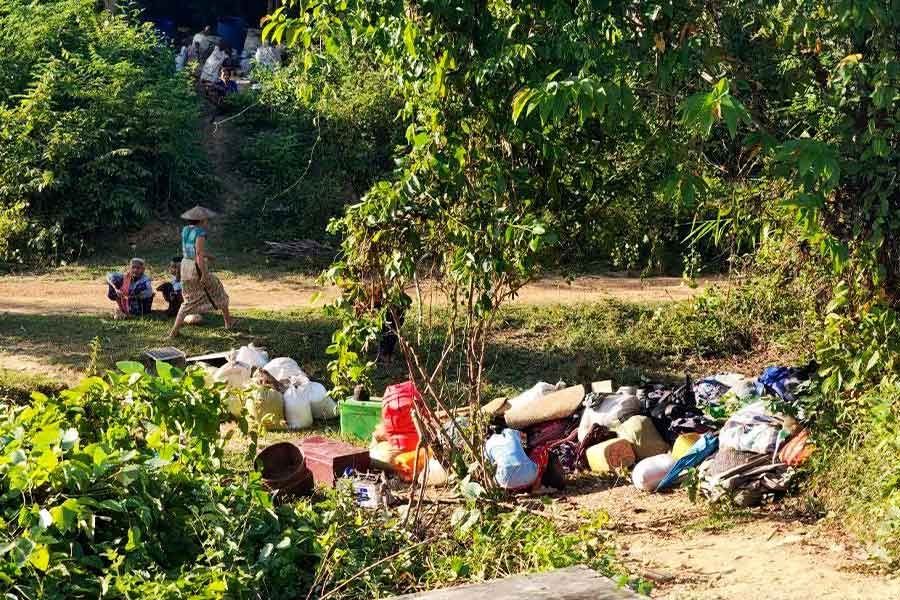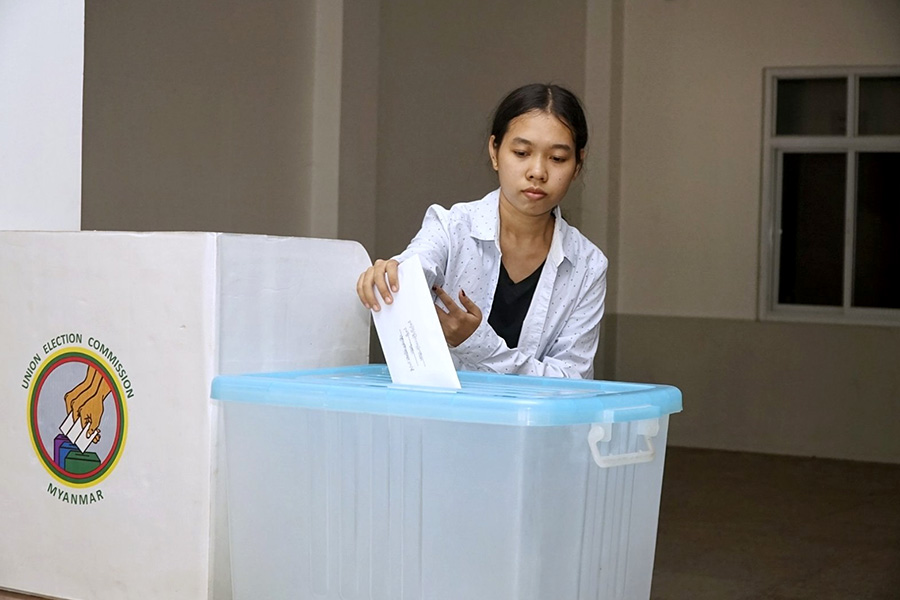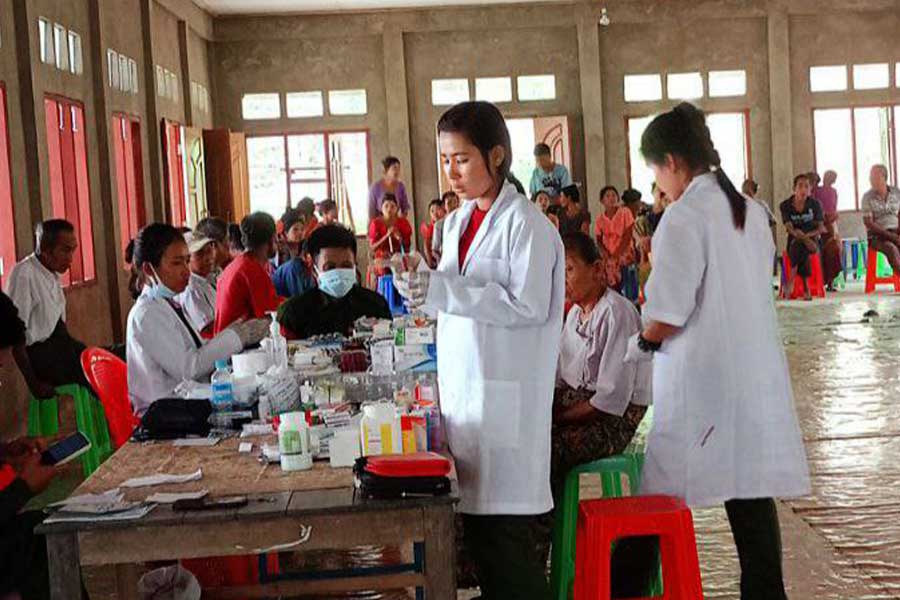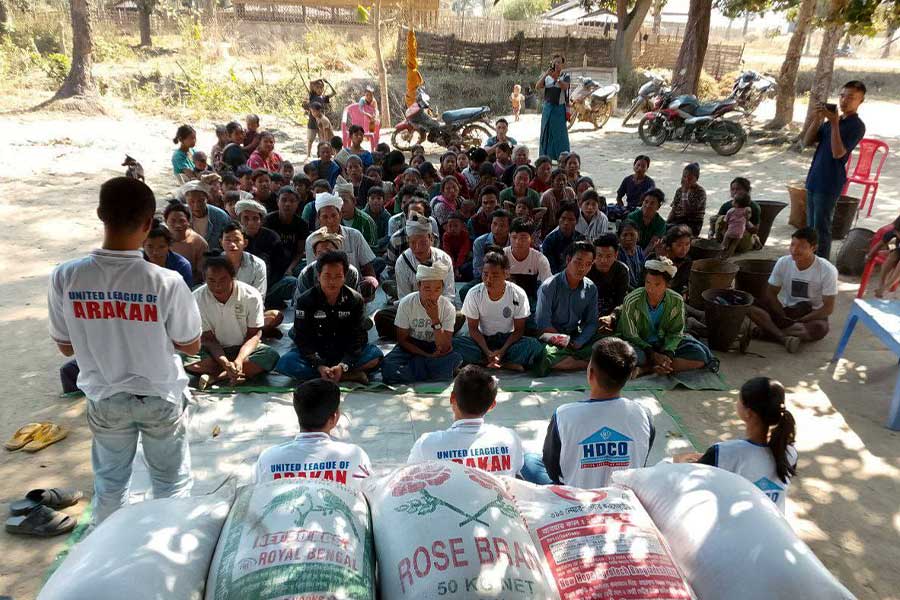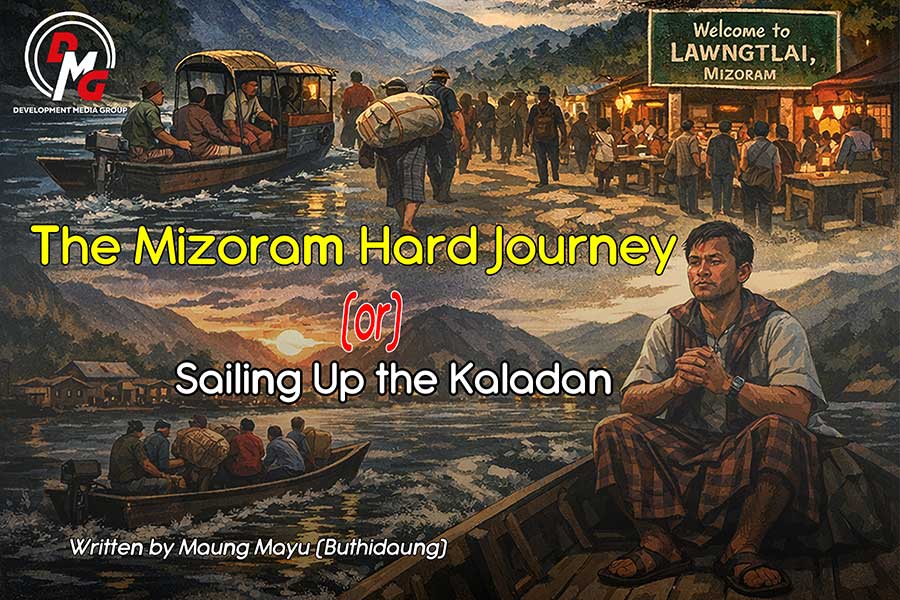- 15 mass casualty incidents from regime airstrikes reported in Arakan State since 2023
- Kyaukphyu IDPs forced to flee again amid junta airstrikes and artillery attacks
- New Diplomatic Movements Between Bangladesh’s New Government and the Arakan Public Administration
- Junta claims over 24 million ballots cast in 2025 poll, cites strong youth turnout
- ULA expands HIV prevention, healthcare services for sex workers in AA-held areas
High Costs and Conflicts Force Arakan Farmers to Leave Lands Idle
The end of May ushers in busy weeks for farmers in Myanmar as they prepare to grow paddy with the monsoon rains. But in war-torn Arakan State, farmers are reluctant to go to their fields.
26 May 2024
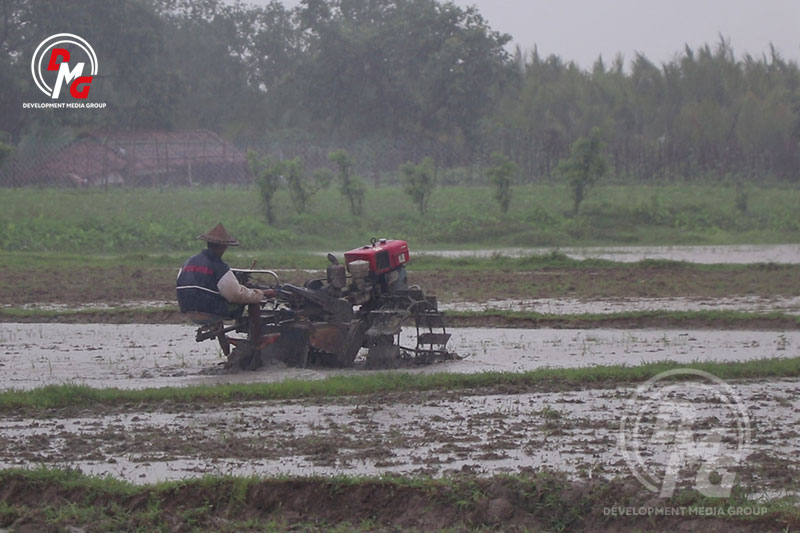
Written by Aung Min
The end of May ushers in busy weeks for farmers in Myanmar as they prepare to grow paddy with the monsoon rains. But in war-torn Arakan State, farmers are reluctant to go to their fields.
They don’t feel safe to go to the farms because of the hostilities in many parts of the state. And increased costs of input are also discouraging them from growing paddy.
“We have a lot of difficulties growing paddy compared with previous years. The cost is too high,” said farmer U Myo Than from Kyintalin Village in Ponnagyun Township.
U Myo Than has six acres of paddy fields. He said he was unsure if he could grow all six acres this year.
The input costs are 1 million kyats for growing one acre of paddy. It is approximately the amount farmers usually earn from selling the output from one acre.
Arakan State is running out of commodities as the regime has blockaded trade routes since the fighting broke out in November. Though goods are still coming via some routes, supply is far below the demand, and prices are soaring as a result. Farmers are among those suffering from the price hikes.
The price of a 50-kg fertiliser sack has tripled from 100,000 kyats last year to more than 300,000 kyats now. Rental costs for farming machinery have also increased significantly, with all this meaning many farmers are finding that they cannot afford to grow crops on all their farmlands this year.
“Previously, we used cows to plough fields,” said farmer U Maung Sein Pe from Paya Paung Village in Kyauktaw Township. “But farmers are only using machinery now, and cows are not available. The rent for machinery to plough farms has increased almost four times.”
U Maung Sein Pe has cultivated around 10 acres every year. But this year, he can only afford to grow four acres, he said.
The price of a 100-litre diesel barrel has jumped from 500,00 kyats to 1.7 million kyats this year. The rent for machinery to plough has gone up from 30,000 kyats to one million kyat.
Ko Lamin from Mrauk-U Township, who ploughs farms with tractors for farmers in exchange for money, said: “I have to charge more because of high fuel prices. As much as I sympathise with farmers, I still have to make a living.”
There is yet another huge challenge for farmers, especially those who own farms near where junta soldiers are or were deployed: At least 40 civilians have been killed or injured by landmines and unexploded ordnance in just the six months from November 13, 2023, to May 13, 2024.
“I trembled with fear when I went to see my farm. I was worried that I might get killed or lose limbs as I stepped forward. It seems that I will have to farm at the risk of my life,” said farmer U Maung Hnaung from Pyinyaung Village in Minbya Township.
Some farmers in Arakan State are reportedly substituting fruit trees and advantageous perennials on land where paddy would otherwise be grown, which can be profitable in a short period of time and at low cost.
Ko Win Hla Maung, a local farmer from Laynyintaung Village in Mrauk-U Township, has converted his farmland into a banana plantation.
“I suffered financial losses last year when I planted paddy. There is not enough capital to plant paddy this year, so only banana trees are planted with less capital. Even if you can’t plant paddy, it makes sense to plant something,” said Ko Win Hla Maung, looking out at this year’s banana crop.
Due to the regime’s blockade of transport routes, farmers were unable to export their paddy to mainland Myanmar last year and sold it only in Arakan State, at whatever price they could get.
While the price of other products in Arakan State is rising, the price of one bag of quality-grade Paw Hsan Hmwe paddy is around K100,000, and the price remains the same as before renewed hostilities.
Arakan State has 1.2 million acres of farmland available for paddy growing. Over 1 million acres were put under paddy cultivation last year, according to farmers’ advocates.
Despite the rising cost of agricultural inputs, the Danyawaddy Paddy Seeds Association urges farmers who can afford it to try and grow paddy this year.
“Otherwise, there will be a food shortage in Arakan State next year and all the people will be in trouble,” said U Maung Thein Hla of the association.
Farmers are facing many challenges to the sustainability of their livelihood in 2024. This year’s paddy yield in Arakan State will almost certainly be greatly reduced, and local food security may be affected.
Rice export is the main economy of Arakan State, and if the production of rice decreases, the economy of Arakan State will take a similar downward turn. Farmers in areas under AA control therefore want the ethnic armed group to help arrange for them to farm despite these challenges.
U Myo Than said that farmers know that they will have to face losses, but when there is a shortage of jobs during the fighting, they will have to do farm work.
“I don’t have any work anymore. I am going to have to do farm work in disgust. During this difficult time, we will have to struggle to survive,” he added.




